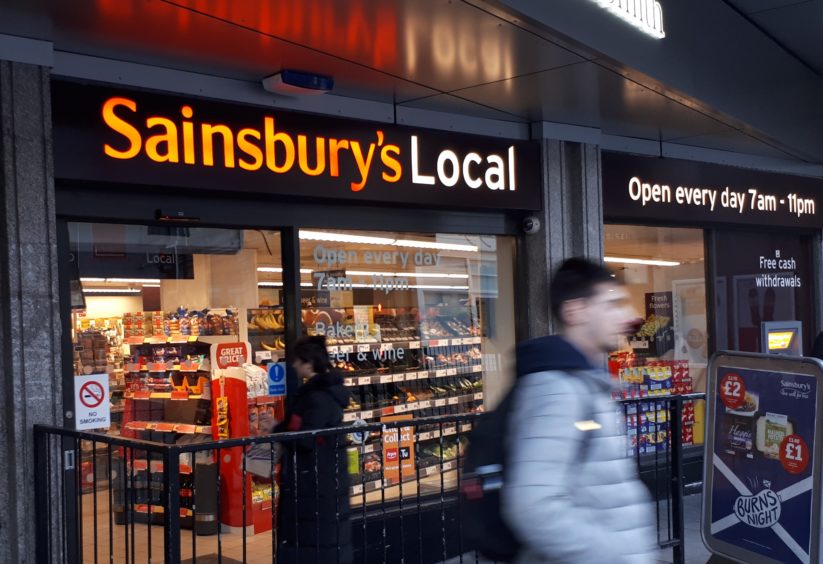
Sainsbury’s plans to invest £1 billion towards making its operations “net zero” by 2040 – a decade earlier than the UK’s legal goal – it has announced.
The retailer said it will take action to cut carbon emissions, food waste, plastic packaging, and water use, and increase recycling, wildlife and healthy and sustainable eating.
It is setting a goal to cut the emissions from its business and operations to net zero by 2040, which it says puts it in line with ambitions in the international Paris Agreement to curb temperature rises to 1.5C above pre-industrial levels.
The UK has set a legally binding target to cut the country’s greenhouse gas emissions to net zero by 2050.
In addition to tackling its emissions from its own business and electricity use, Sainsbury’s said it will work with suppliers to set their own ambitious net zero commitments.
Measures the retailer will bring in include more renewable energy, making fridges as efficient as possible, running 20% of its fleet on zero and low-carbon fuels by 2025 and switching all lighting in stores to LEDs by 2022.
Sainsbury’s also announced plans to minimise water use, fitting stores with rainwater harvesting facilities, lowering the amount of water in bathrooms and looking to recycle water from ice on fish counters and car washes.
The company has pledged to halve plastic packaging by 2025, and by the end of 2020, it says will have removed dark-coloured, hard to recycle plastic and polystyrene packaging from own brand ranges, as well as removing plastic film on fruit and vegetables where possible.
The retailer is also piloting a deposit return scheme for plastic bottles, continuing work to plant trees, and expanding the meat alternatives it sells, as well as cutting food waste by half by 2030.
Mike Coupe, chief executive of Sainsbury’s, said: “Our commitment has always been to help customers live well for less, but we must recognise that living well now also means living sustainably.
“We have a duty to the communities we serve to continue to reduce the impact our business has on the environment and we are committing to reduce our own carbon emissions and become Net Zero by 2040, 10 years ahead of the Government’s own targets, because 2050 isn’t soon enough.”
He said Sainsbury’s had already reduced carbon emissions by 35% over 15 years, despite the footprint of the business growing by 40%, and had invested £260 million in more than 3,000 initiatives in the last decade.
“Over the next 20 years we will invest a further £1 billion in programmes that will transform the way we do business and put environmental impact at the forefront of every decision we make,” he pledged.
Recommended for you
